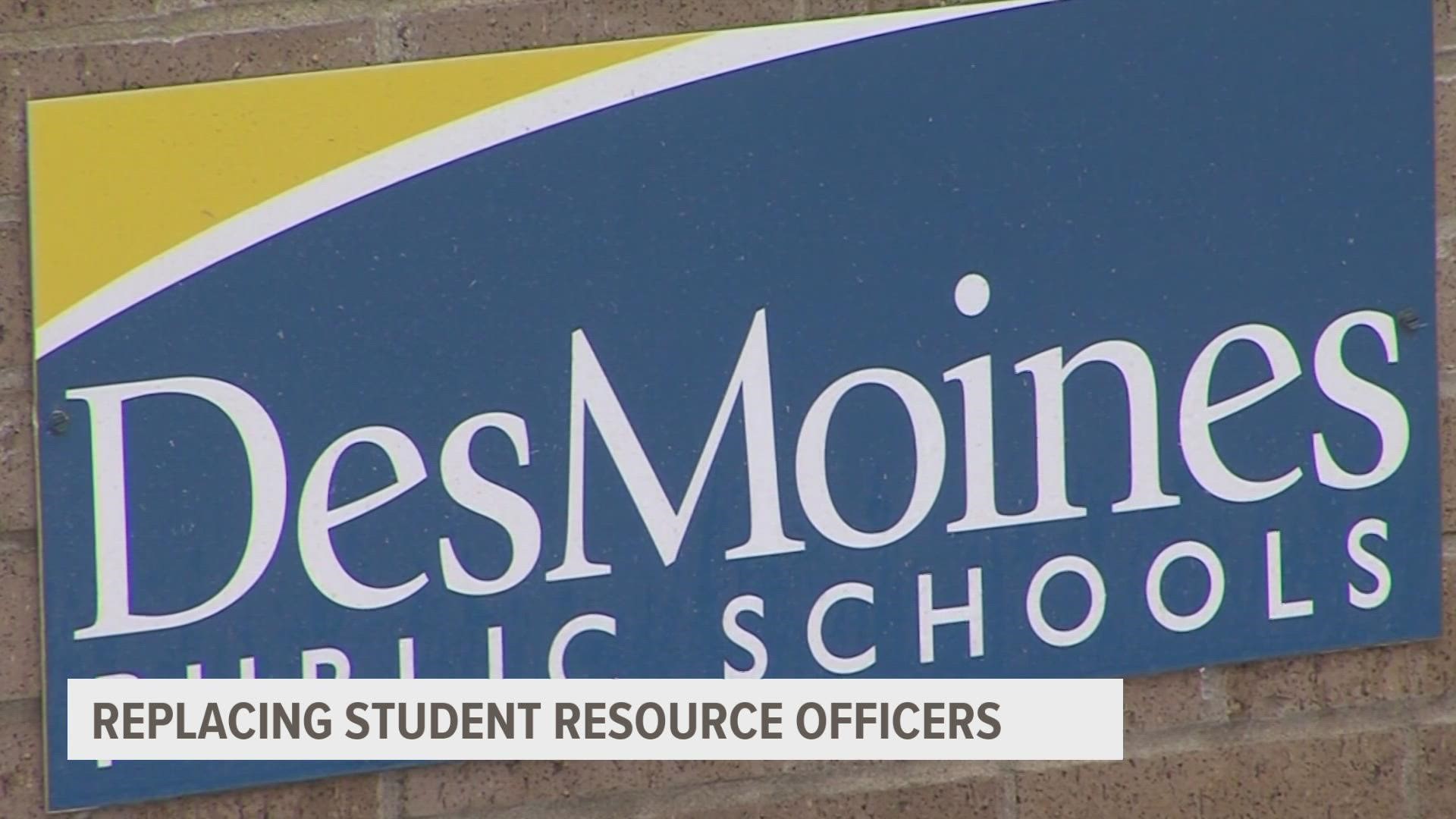DES MOINES, Iowa — Des Moines Public Schools has not had school resource officers on its campuses since April 2020.
Nearly a year later, DMPS removed the contract for SROs.
SROs were police officers from the Des Moines Police Department who were at different schools. Their purpose was to help when conflicts arose.
"What we saw was disproportionality an overuse of law enforcement with our students," DMPS Director of School Climate Jake Troja said. " Specifically students of color."
DMPS gathered data by reviewing past incidents involving SROs and students in their schools.
With SROs gone, Troja said they are using other methods to keep campus safe. The new method involves three positions.
- Restoration Safety Coordinator: This person creates safety plans for a school and makes sure the system is in place.
- Campus Monitors: People who make sure plans are executed as well as greets people on campus.
- Restoration Facilitator: A contract position DMPS has with staff from Urban Dreams.
"We are just the part that comes in and does the facilitation through the coordinators in the Des Moines Public Schools," Izaah Knox, the executive director of Urban Dreams, said.
The contract DMPS has with Urban Dreams is $150,000 for one year. The contract it had with DMPD for SROs cost between $750,000 and $1,000,000 annually for the last 10 years.
There will be one restoration facilitator in each of the district's five high schools. They are meant to help students solve problems and give them alternate ways to handle a situation before things get out of hand.
"We have people from the community that are culturally competent, that look like [the students] that understand [the students], that have grown up here and were in similar situations," Knox said.
RELATED: Des Moines School Board backs plan to remove school resource officer program, but won't vote on it
Two of the facilitators are Ahmed Musa and Michael Madlock.
Both said they take their job seriously because they remember being in schools. And if an SRO was called in for a situation, that meant a student got in trouble, and this issue was addressed but not the problem behind the issue.
That's why Musa said he has an open-door policy for the students at the high school he works at, which a student took advantage of this week.
"Instead of fighting, let's address the situation in a way that's restorative where you can still express your feelings but in a manner that's still respectful and then you can go about your day," Musa said.
"And that's what we did, [me and a student] spent like 30 minutes, like she went from saying 'Next time I see you I'm going to fight you' to 'I didn't like what you did, it was rude so please don't do that again.'"
Although SROs are no longer on campus, police will still be called to Des Moines schools in situations where they are needed, like if a law gets violated.
Police will also be present at certain school events, but in an off-duty capacity.
"That's mostly because those events are involving more than just students," Troja said. "We're talking about the whole community at that point and time."
WATCH: CDC director shares Labor Day, back-to-school tips amid COVID surge

